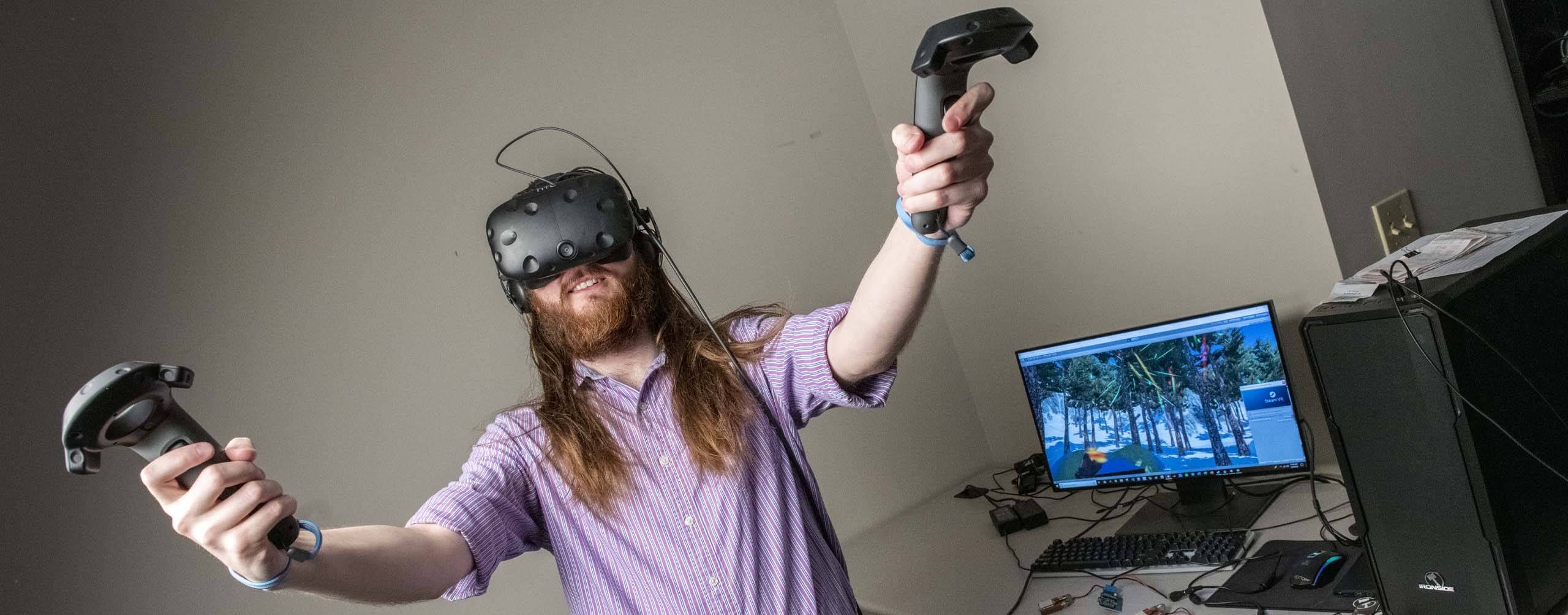
Human-Centered Technology Design
Maine College of Engineering and Computing
The B.Sc. in Human-Centered Technology Design (HCTD) is a multidisciplinary program that focuses on the design of creative technologies to improve human experiences. HCTD blends elements from new media, computer science, spatial computing, psychology, communication, and innovation engineering to empower students to investigate artistic and innovative problem-solving approaches using emerging technologies, such as AI, AR, VR, IoT, and autonomous vehicles.
Our undergraduate program, in the beginning, focuses on laying a strong foundation on Human-Centered design principles, Core Computing concepts, principles in psychology and communication.
Students in the HCTD program will develop skills in:
Students in the HCTD program will develop an understanding of:
The study of human factors and human-centered design is becoming an increasingly critical field of education as consumer demand for new technologies and gadgets continues to grow.
After the completion of the HCTD degree at the University of Maine, students can look forward to careers in industry, government, and education. Following are several job opportunities for HCTD graduates: user experience (UX) designer, usability engineer, user interface (UI) developer, game designer, UX/UI researcher, design researcher, application developer, information architect, instructional designer, mobile application developer, product designer, systems analyst, and web application developer.
Nimesha Ranasinghe
Assistant Professor of Spatial Computing
Boardman Hall, Room 333
207.581.2195 | r.ranasinghe@maine.edu
School of Computing and Information Science
College of Liberal Arts and Sciences
Boardman Hall, Room 348
